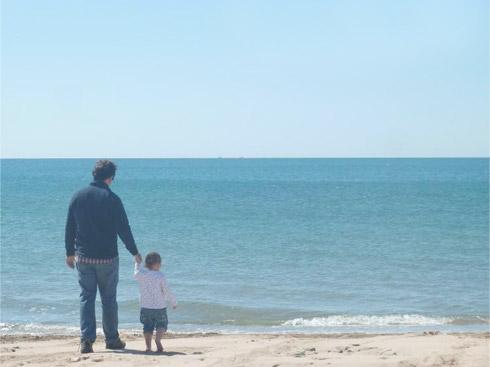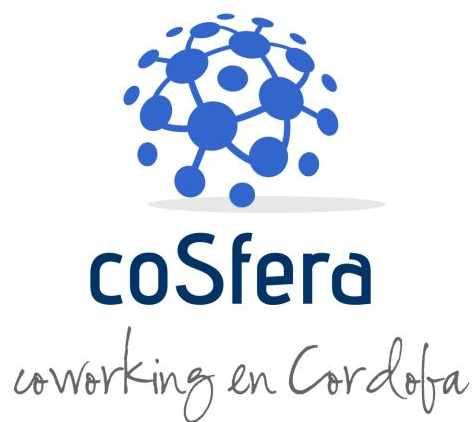Para leer esta entrada en Español, aquí
To read this post in Spanish, here
Here you have the second story in the category » How is life in…?«.
This is the story of Conny’s family. I met Conny 15 years ago and I’m really proud of us keeping in touch. This is a 4 member family who live in Saarland (Germany).
THANK YOU Conny… I really hope to see you very soon! Great family, great persons… I appreciate you soooooooo much.
-o-
Hello everyone! We are…
Cornelia Duval: 37 years, born in Waren/Müritz (Land Mecklenburg Vorpommern, NE Germany); now living in Saarland (town St. Ingbert). Own small house since 5 years. Working 32 hours per week (4 days). Driving 40 min to work one way. Have often meetings in the afternoon with US collegues.
Dewi Duval: 36 years, born in Casablanca/Marocco. Living in Germany since 12 years now. Working 40 hrs per week (full time). 10 min drive to work.
2 children: Felix 6 years, Enya 4 years. Both in same day care 8.30 to 5 pm.
A normal day in my life…
I (mother) gets up around 6.30, father and kids a bit later. Sometimes have breakfast with Enya. Otherwise father and kids together. I leave between 7.30 to 8 to drive to work. On the highway sometimes traffic jams. Father brings kids to day care (around 8.30) and drives to work. That is Mon-Thursday. I stay at home Friday, and often keep the kids at home as well, or have appointments at doctors, etc. During the other work days we try to share the pick-up of te kids from day care (2 times mother, 2 times father). Day care open until 5.15 pm.
Afterwards kids play at playground or in house/garden. Dinner around 6.30 pm.
Often TV kids cannel 7-7.30 pm
Afterwards get ready for bed, read a story to each child, sing a song to the youngest. They should sleep around 8.30 (should…).
Pregnancy and maternity leave…
I felt good during both maternities and worked until the last day prior to official maternity leave.
We can leave 6 weeks prior to the defined birth date. Or if the doctor recommends to stay at home, e.g. if physical work is too hard, or if child is in danger, or if there is danger for mother /child to catch diseases (e.g. teachers or nurseries stop working quite early due to this).
Usually the company has to provide a resting location for the pregnant mother (during work days) but I rarely see this in practice or if there, not being used by the women (it may be seen as bad to lie down somewhere…).
Official maternity leave is 6 weeks prior and 8 weeks after birth. Fully paid during this time (I think cost is shared bw. company and social insurance).
Afterwards, it is called “parents time” (Elternzeit). Parents can get payments for 12-14 months after birth. 12 months if only one partner stays at home, 14 months if at least 2 months are taken by the other partner (usually husband is shorter or equal in time). Parents can split the 14 months as needed.
Payment is about 60% of the last 12-months average salary (net). The state pays for it. Maximum 1800€ per month, minimum about 400€. Parents can shoose to get less money but longer than the 14 months (at the end the same sum).
The family can tell the company how long the parents want to stay away from work. It can be even longer than the 12 months, max. 3 years. But it needs to be declared in advance. The company must offer a similar job & payment when the parents return, but it might be a different position.
At the hospital they usually do the first medical treatments and measures, including audiometric measures in my region. Ones at home, a midwife (Hebamme) comes regularly to help with baby care or breast feeding or any questions. Ones the belly-button is dry and healthy and everything fine she will not come anymore.
There are also regular and mandatory kids doctor appointments, where development of the child is verified and questions answered, and necessary vaccinations are done.
During pregnancy, there are several paid measures for baby and mother. If no urgency applies, there are about 3-4 ultrasonic check-ups. If you fall under the “risk category” (older 35 or so…) you get additional check-ups to make sure there are no malfunctions. There can be differences between someone who has a state social security or a private social security. I had the generic state social security and was satisfied with my checks.
We have here, a kind of paternity leave, at least in theory . This is even encouraged as payment is extended to 14 months if father takes at least 2 months off. More and more fathers are doing it, even if the employers still have to get used to this idea… works better in larger companies than in smaller ones I think.
Going back to work…
I think if the company has more than 30 or so employees (not sure about the exact number), you have a right to get a part-time job when returning from maternity leave. However, then it’s not sure that you get the same level of job/position or level of salary. After my first child I started again with a 20 hour-week instead of 35. But it was a hurdle as this was unusual in our company (usually the women were more or less quitting work until the kids were 6 years… that was a common behavior in West Germany until some years ago).
However I did not get the same position but one with 2 grades lower. But the salary was still ok and so I did that job for 2 years until I went into the next maternity leave :-D. In the meantime I increased my hours to 25/week.
After my second child, there was an open position to a job I really wanted, but it was not offered as part time and there was no chance in getting it with reduced hours. So I started full time right away as I got the position… that was only possible as my husband has relatively flexible hours and can bring the kids to the day care, and fetch them at least 2 times per week. After some months of showing my skills I asked for a reduction in time (hehe) and my supervisor was very supporting. Our HR department was not so keen on doing this (especially as this was unusual for a program management position) but we succeeded and so I had Fridays off.
I think the part time work is increasing as more women return earlier to work now (so after 0.5-2 years off).
Employers need to get used to this and make their job offerings more flexible to retain good talent.
So a part time job can have a negative impact on the career path due to lower positions but is still better than staying away from work for 3 years or more.
However I think it’s difficult to apply for a new part-time job in a completely new company, who doesn’t know and value your skills (yet), especially if the position is usually a full time job.
About nurseries and school…
Organisation with children is really different from family to family even in the same country. I can only provide my example.
As our grand-parents and closer family live 10 hours away, we decided to bring the kids into a day care (Kindergarten). Since some years, more and more day cares add places for under 3-year old kids. I applied for a place in several day cares at ones and over a year in advance (I was still pregnant and wanted to rework when Felix was 1 year old). I was lucky and got a full-time place. As Felix was already in this location, it was easier to get a place for the sister as well. Again, I applied when I was still pregnant…
However I know from other mothers who were not so lucky and could not return to work when they wanted, or had to manage that differently through a nanny or grand-parents. However there are not so many official nannys as in US or France for example. The demand is growing though, and nannies get a portion of their money from the state, especially if they take kids from mothers who have no partner anymore.
Kids have a right for day care when they turn 3. But even then it’s not always easy to find a near-by location for the kid.
In Germany there are public and private day cares. Private day cares are often from social organizations or churches. The concepts of the groups and activities can be quite different from one to the other. So mothers need to get informed if they can agree with this. E.g. in our location we have mixed groups, where one group contains up to 5 kids under 3 years and max. 13 bw. 3-6 years. In other locations they separate the under and over 3 year old kids. There is also one organization that mixes handicapped and non-handicapped kids in one group.
After “Kindergarten” kids go to the Basic School (Grundschule). Kids are than usually between 6-7 years old.
Public schools are free, except for lunch and books/material, and an after-school-care if offered and needed.
10 years ago after-school-cares were very rare, as mothers stayed at home anyway (or were forced to as it didn’t exist). Now, at least in our region we have ground-schools that offer a care when classes are finished which is usually bw. 11.30 and 12.30 in the first 2 years.
Our school offers lunch and afterwards an hour for homework (a teacher is present). Homework ends around 3 pm, and either your kid get picked up at this time or can stay in the care rooms until 5 pm. The persons in charge there are not teachers but at least one of them has some kind of education in social jobs. Depending on the available money they organize activities for the kids, like baking, sports (supported by local clubs) or other projects. Or they kids just play in the rooms or outside in the yard.
This offer with the day-school makes it also easier to handle the over 6 weeks vacation that the kids have during a school year. The organization who offers the after-school-care also offers care/activities during a portion of the vacations, which makes it much easier for working parents.
We will have more practical experience next year when Felix is at school…
By the way, in Germany, the parents are contacted automatically by the school which is responsible for the kids in their defined area. If the parents don’t want to send the kid to this school, they need to contact the town administration and explain reasons for the change request (e.g. a bi-lingual school or a school closer to the working location etc.).
The start with foreign languages is really dependent on the region/land or even school. We have one school in town which started with French as second language directly in the first class (due to the close French border). Others will add English in the 3rd class or even later.
Basic/ground school ends after 4 years. Afterwards the kids go to the “Gymnasium” (preparation for University) or “Realschule” (preparation for college / professional school). In some regions there are even more levels.
Problems and solutions at work…
Need a good relation / trust to the former/new supervisor, than it’s much easier to fight for changes to make life easier. Other examples in the text above.Options to combine personal life and work…
To combine personal life and work just see example of job rights after maternity leave, and right for part-time jobs in larger companies. Also, the workers union has established many rules with larger companies, like the 35-hours week.
Then it depends a lot on the company itself if they have initiatives for work-life-balance. I’m lucky that I work in such a company, and I could see improvements over the last years (like models to reduce working time, or home office for a day in the week, etc.)
(May, 2012)
Thank you Conny!
As usual, I encourage you to contact me to write about how is life in your country!!!!! How do you live, combine personal life&work, what activities you like…Your life is unique!
Para leer esta entrada en Español, aquí
To read this post in Spanish, here













